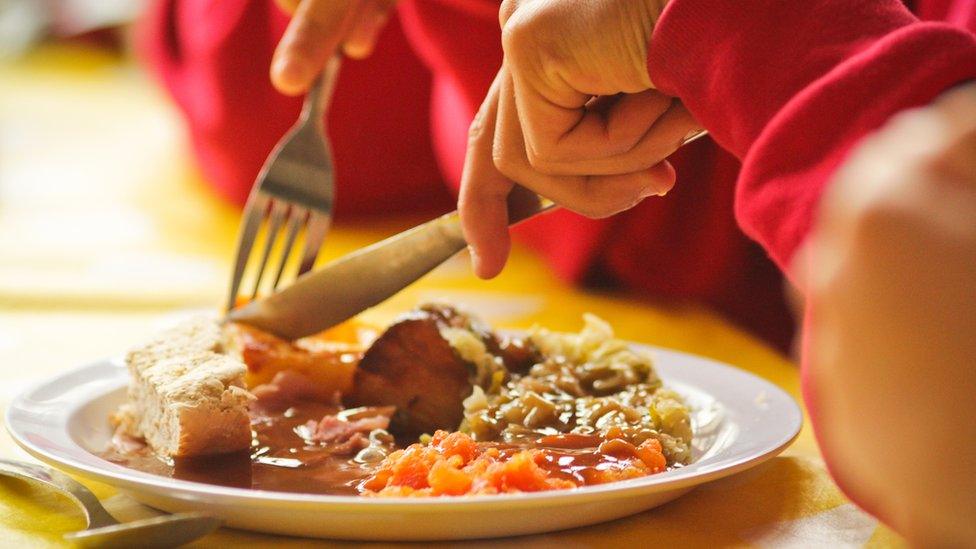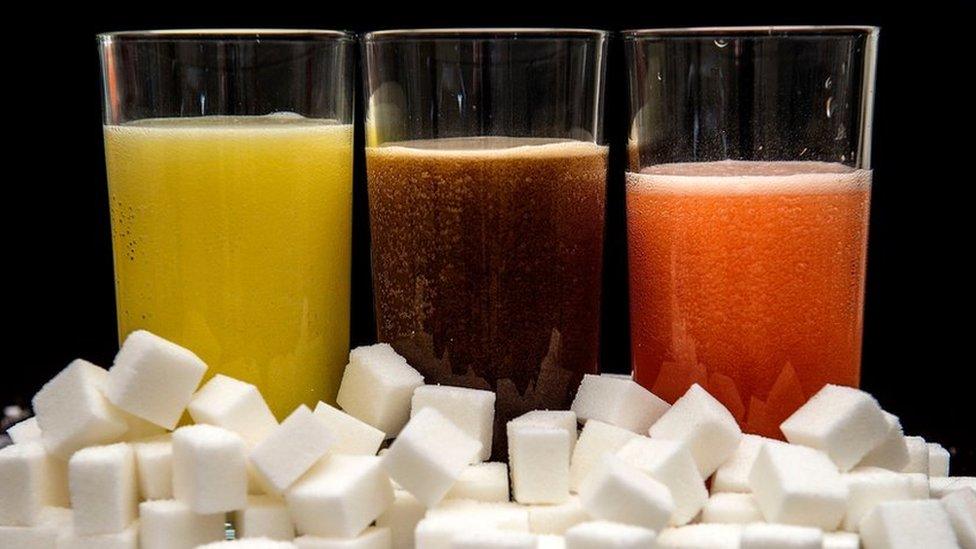Action urged on school holiday hunger
- Published
- comments

Too many children miss out on meals in the school holidays, says the report
Going hungry in the school holidays is a growing problem for up to three million UK children, MPs and peers say.
The All Party Parliamentary Group on Hunger warns too many children have to survive on crisps and energy drinks when school kitchens are closed.
One group had to drop out of a summer football scheme because they had not eaten a meal in days, its report says.
The Department for Work and Pensions says it is committed to tackling child poverty and disadvantage.
According to the report, children at risk of holiday hunger include an estimated:
One million growing up in poverty who receive free school meals during term time
Two million whose parents are on low wages but do not qualify for free school meals
For both groups, school holidays place extra burdens on family budgets in terms of food, fuel, activities and childcare.
The report says this is sometimes "compounded" by a shortage of skills to cook and shop on a budget.
It claims the loss of free school meals adds between £30 and £40 per week to parents' outgoings for one child.
The Family and Childcare Trust told the inquiry that three out of four local authorities do not have enough childcare in the school holidays.
Parents working on zero-hours contracts were said to be particularly vulnerable to the higher costs of childcare.
Evidence during the two-month long inquiry to the group, included children reported to have vomited from lack of food, while others were being fed flavoured water or cereal as their parents could not afford proper meals for them.
Referring to the group which had to drop out of playing football, the report says: "Their bodies simply gave up on them," says the report.
'Sugar tax'
Too many children return to school malnourished, sluggish and dreary, says the report.
They are often weeks or months intellectually behind their better-off classmates who have a more wholesome diet during the holidays, it adds.
It urges the government to set aside 10% of the tax on sugary drinks, due to start next year, to allocate £100,000 to every council to fund schemes to ensure that children are properly fed during the school holidays.
It claims the cost of providing free meals and activities during holidays can be £1.50 per child per day.
The report urges ministers to impose a statutory requirement on local authorities to run schemes delivering "free meals and fun" for children during school holidays, with voluntary groups "in the driving seat wherever possible".

Schools, businesses and voluntary groups already provide some meals
In the "fifth richest country in the world, too many children are stalked by hunger," said committee chairman Frank Field in his foreword, describing the evidence as "staggering".
While highlighting examples of those tackling the problem, he said "abolishing hunger during school holidays is beyond the ability of individual community groups and volunteers alone".
Dr Philippa Whitford, a vice chair of the group, said that losing access to free school meals during the holidays could "simply be the final straw which overwhelms some families' ability to keep their children fed and, particularly, nourished".
"Hidden hunger does not just result in underweight children... those who are eating a stodgy low-protein diet, with no fresh fruit or vegetables, can end up both obese and yet malnourished," she said.
In its response to the report, the Department for Work and Pensions also said the employment rate was the joint highest since records began and the number of children growing up in workless families is at a record low.
A spokesman added that more than £90bn a year was being spent on working age benefits to provide a "safety net".
Among the measures that have been taken announced recently by ministers to encourage healthy eating among children was £10m a year funding to expand breakfast clubs in up to 1,600 schools in England from September this year.
- Published16 December 2016

- Published5 April 2016
